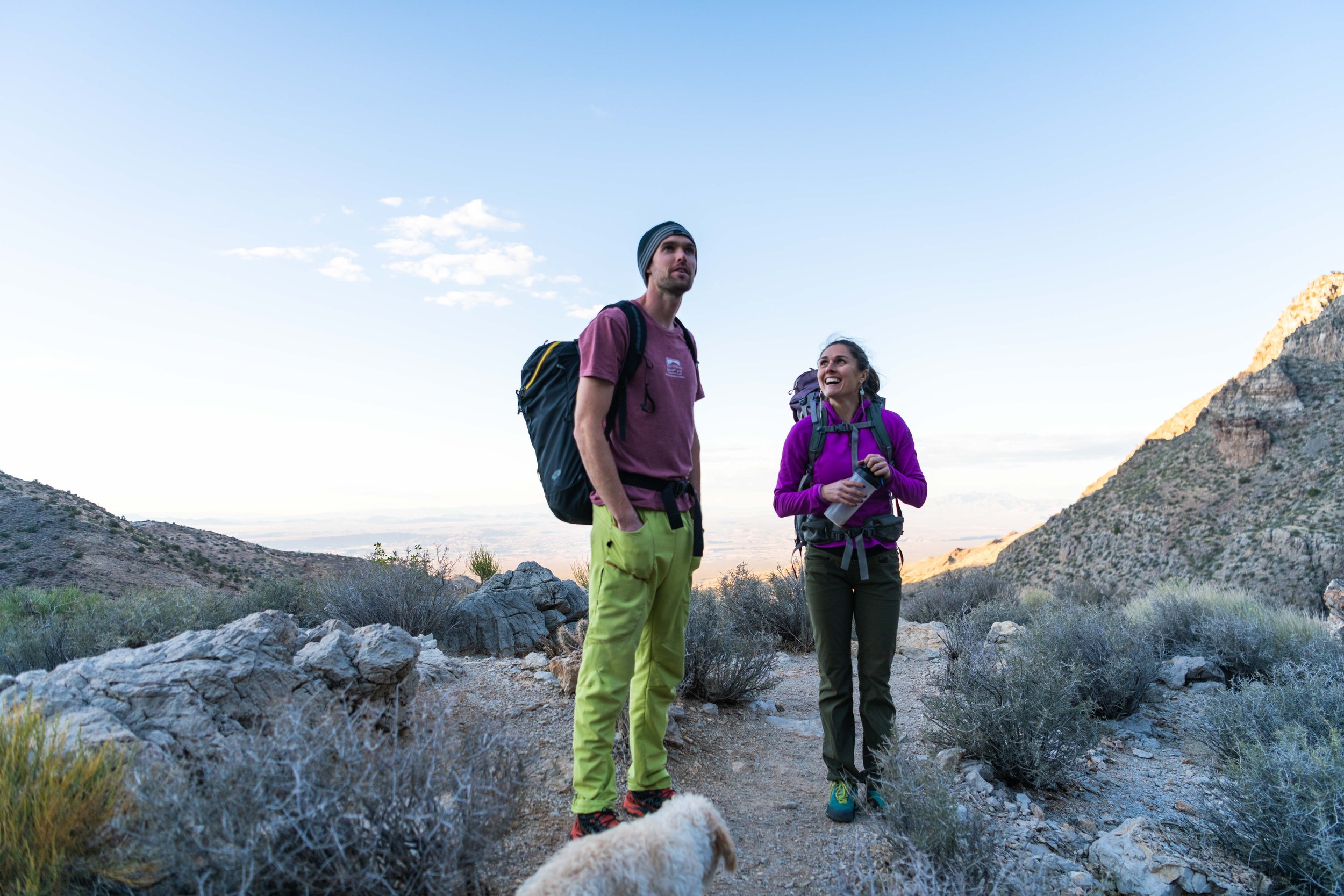
“Mastery lies not in the capturing of a summit, but in a oneness with each detail of the experience.”
— John Gill, bouldering legend
The blog
Mental training is often overlooked as the most powerful way to take our ability as climbers - and humans - to the next level. That’s why we’re on a mission to elevate ideas and resources at the intersection of climbing and personal growth. On this blog you’ll find our favorite beta about everything from brain training and life coaching to holistic wellness and yoga - all for climbers.
Have an article or resource you’d like to share with us?
Can gratitude help you get in the zone for climbing?
You’ve probably noticed that standout climbing performances happen when you’re in the right mindset. Try this simple gratitude exercise before the next time you climb, and see if it helps you get in the zone.
Climbing and personal growth: how to make the rock your mirror
We can make personal growth through climbing a conscious process by asking a simple question: “What is the rock trying to teach me?”
Mental training for climbing: 3 beginner exercise
Our thoughts impact everything in climbing, from what goals we set and what climbs we try to our training strategies and climbing technique. Here are three beginner exercises to help you get started with mental training for climbing.
How to track your climbing & training with a spreadsheet (template & explanation)
How do you log your climbing and training so it's easy to see in one place? Remy Franklin shares his rock climbing and training spreadsheet with a template you can modify to create your own.
“Why do I suck at climbing?!” 6 tips for high gravity days at the crag
Focusing on achievement in climbing has a downside: if we’re pushing our limits, most days we won’t succeed. What does it take to embrace and celebrate the joy of accomplishing hard climbs, but not punish ourselves when we don’t? Here are six tips to help you enjoy those “high gravity” days at the crag when everything feels hard.
How to use route pyramids effectively in rock climbing
When I moved to Spain last fall, I faced an interesting new situation. I was surrounded by a lifetime of high-quality sport climbing at every grade, and I wondered: How much time should I spend onsighting vs. projecting? And when I did decide to project, what grades should I aim for? We all have our version of these questions, and I think route pyramids can help.
A Step-by-step guide to setting New Year’s climbing goals
Happy New Year! As December winds down it’s normal to contemplate the year past and the year to come. What went well? What were the challenges? How do you want to grow in 2022? What do you want to accomplish? Read Remy’s article in TrainingBeta for a step-by-step guide to setting your New Year’s climbing goals.
Thought patterns that hold climbers back
Most rock climbers hold themselves back by not training their minds. There are many facets of mental training for climbing, from motor pattern brain training to increasing self-awareness. But the most straightforward way to start training our minds for climbing is to develop an awareness of our thought patterns.
Let’s look at five limiting thought patterns that hold most climbers back. As you read, consider: Which of these thoughts does your brain like the most? To what effect?
A simple rule that will transform your relationship to effort
I often hear conflicting advice from climbing trainers and coaches. On the one hand: “You won’t feel great every day, but sometimes you have to get up and train anyway. That’s how you achieve greatness.” On the other hand, “Listen to your body.” What about those days when you feel exhausted but your training plan still says you should do a workout? How do you know when to go hard and when to take it easy? Here’s a simple rule that will transform your relationship to effort.
How to make hard things fun
Think about something meaningful you’ve accomplished in your life. It could be a professional success, an athletic win, or something in your personal life. On a scale of 1–10, how much effort did that accomplishment require? Were there times when it wasn’t “fun”? Were there times when you wanted to give up? I’m guessing your answer is “yes.”
How to make rock climbing a spiritual practice
If you’ve climbed for a while, you’ve probably had what I would call a spiritual experience on the rock: your mind goes quiet, time seems to slow down or stop, and you’re entirely present in the moment you’re currently living. Maybe you’re intensely aware of the beauty around you or so fully in your body that you experience a deep sense of joy. Does this sound familiar? I’ve been lucky enough to experience these moments on the rock several times.
The first step to climbing 5.14
A few weeks ago I went climbing with a new partner who surprised me. At age 21, he has been climbing for just four years, but his climbing skill and accomplishments would suggest at least a decade of experience. He’s redpointed multiple 5.14s, and earlier this season he sent nearly all of El Cap’s Freerider ground up on his first attempt. After a nice day climbing together at a local crag in New Mexico, I couldn’t help but wonder: What allowed this kid to get so good at climbing so fast?!
Rock-Life Balance: The Climbing Wheel of Life
Do you ever feel like rock climbing is taking over your life? Or that there isn’t enough time to fit climbing in between work and your other commitments? The Climbing Wheel of Life is a simple activity to help climbers pursue rock-life balance.













